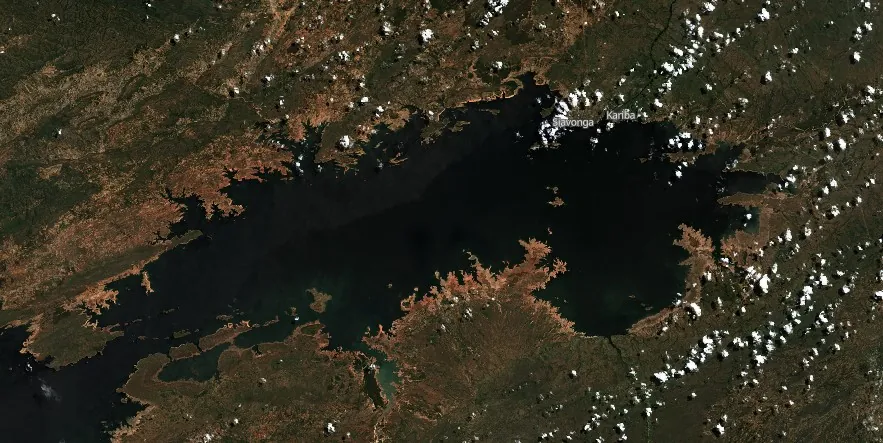Historic drought impacting over 1 million ha (2.5 million acres) of crops, Zambia

Zambia is in the throes of an unprecedented drought, prompted by El Niño, resulting in the driest February recorded since 1981. This natural disaster has compelled the President to declare a state of emergency, with 84 districts suffering and over 1 million ha (2.47 million acres) of crops affected, causing widespread shortages in essential resources including food and water.
Zambia is experiencing unprecedented drought, with 84 out of 116 districts reporting substantial effects on various sectors including food systems, water and sanitation, education, and energy supply.
Following the driest and hottest February since 1981, significantly affecting the nation’s agricultural output and food security, the President of Zambia declared a state of emergency on February 29.
Government assessments have estimated that over 1 million ha (2.47 million acres) of cropland have been affected. Rapid assessments conducted in 27 of the most severely impacted districts revealed a dire humanitarian situation, with local markets experiencing critical shortages of staple foods; only 11.4% of markets had maize available, and 31.1% had maize meal. This shortage indicates a significant threat to food security in the region.
Survey data from 4 277 households illustrate the extent of the crisis, with 51.7% reporting a poor Food Consumption Score. This poor nutritional intake is alarming and reflects the widespread inability of families to meet basic food needs.
The Minimum Expenditure Basket (MEB) model indicates that 70.6% of these households cannot afford essential food items, exacerbating the risk of malnutrition and health complications among the affected population.
Extrapolating these findings to the entire population of the 27 affected districts reveals that approximately 2.3 million people (out of 20 million total population) are moderately food insecure, with an additional 600 000 being severely food insecure.
The declaration by the President calls for action to alleviate the loss of lives due to hunger. However, ActionAid said it has observed the absence of adequate early warning systems that would have prevented the huge losses incurred by farmers especially in the southern part of the country due to drought.
“Having such a strong system would have prepared the farmers with regards to the kind of crops they would have planted to prevent crop failure and loss of financial resources,” Jovina Newanzake of ActionAid Zambia said.
“There is an urgent need for investment in early warning systems. The Government must increase the allocation of resources to early warning systems to the Ministry of Green Economy and Environment in particular the Meteorological Department to prevent losses incurred during the El Nino and better prepare the farmers against future natural calamities. The Disaster Management and Mitigation Unit (DMMU) should be proactive.”
References:
1 Zambia – Drought – DG ECHO – April 11, 2024
2 ZAMBIAN GOVERNMENT DECLARATION OF A NATIONAL DISASTER AND EMERGENCY – ActionAid Zambia – March 1, 2024
Featured image credit: Copernicus EU/Sentinel-2, The Watchers. Acquired on April 4, 2024

Well, here we sit on a planet with oceans, and there exists a lot of desalination technology which is not being used to abate these kind of things. It’s a choice, not to to that. Instead, its back to victimhood.